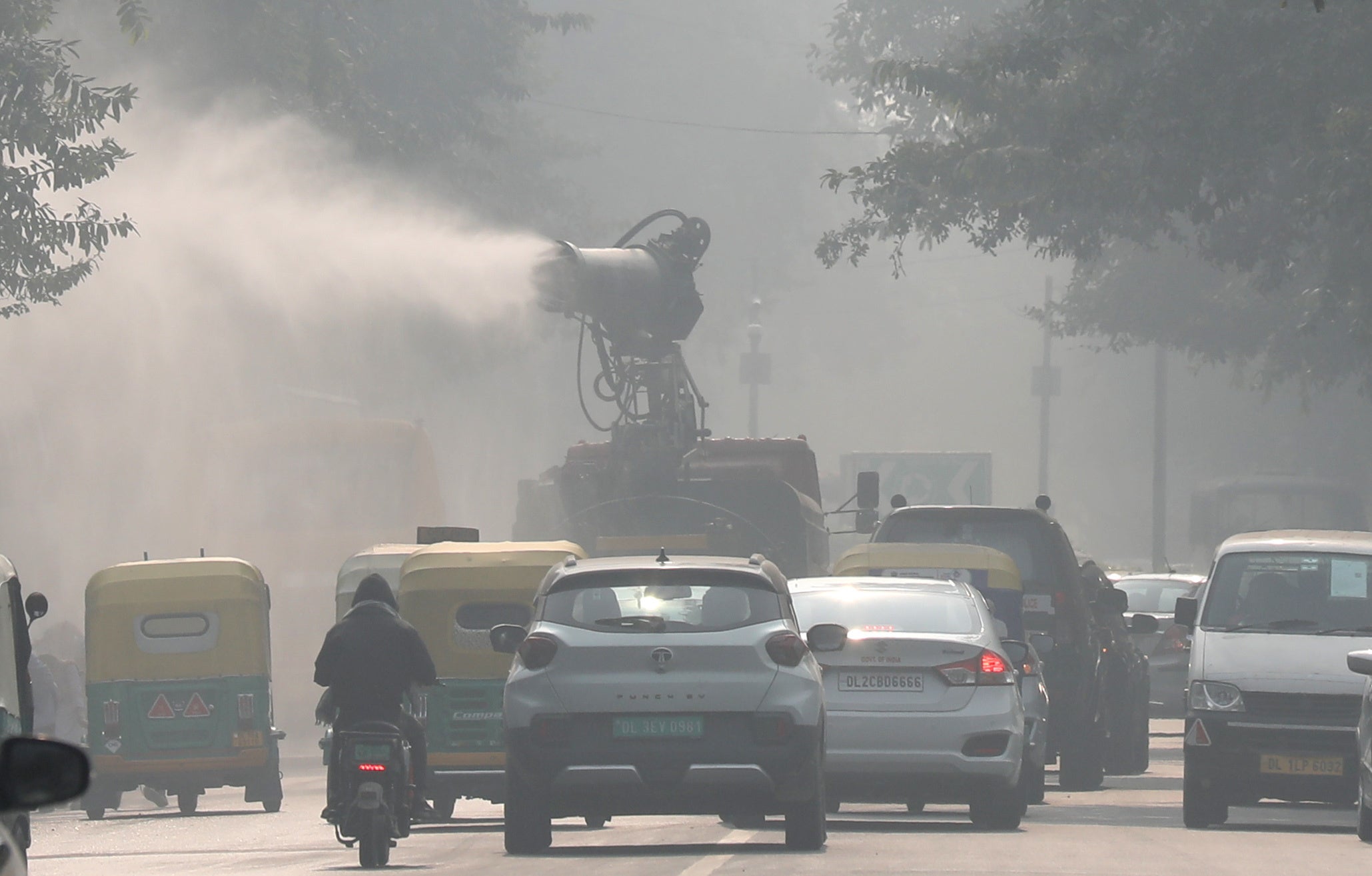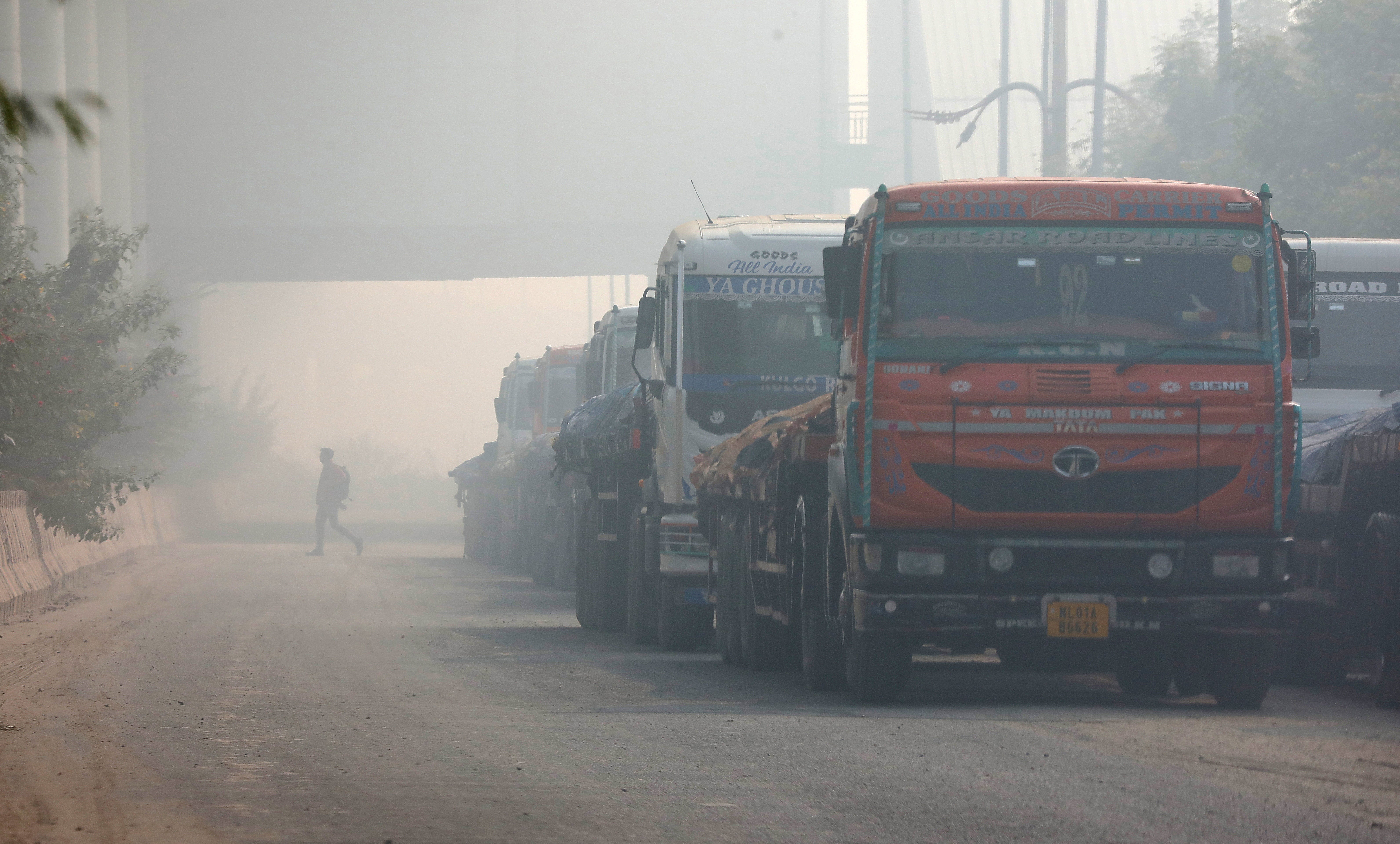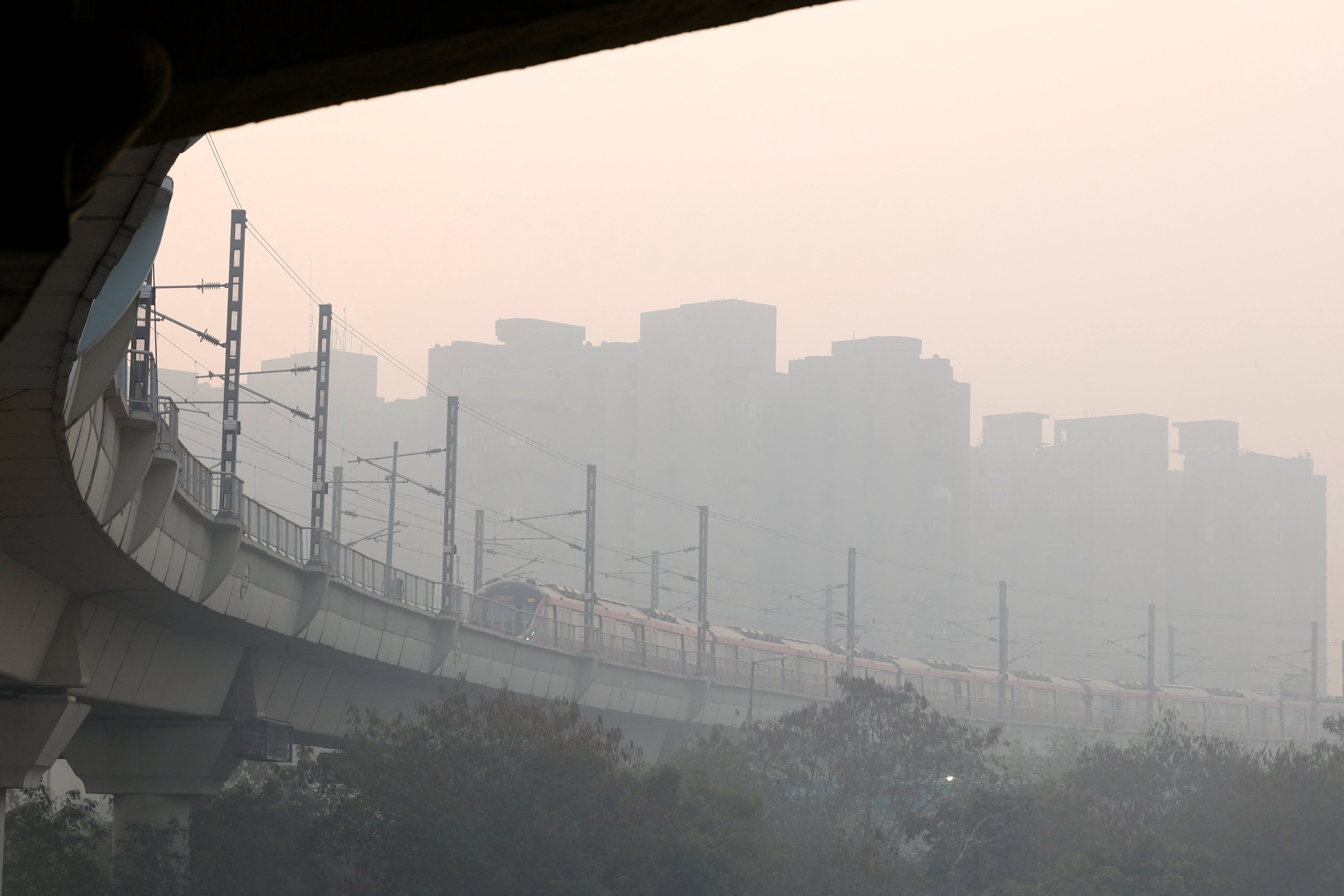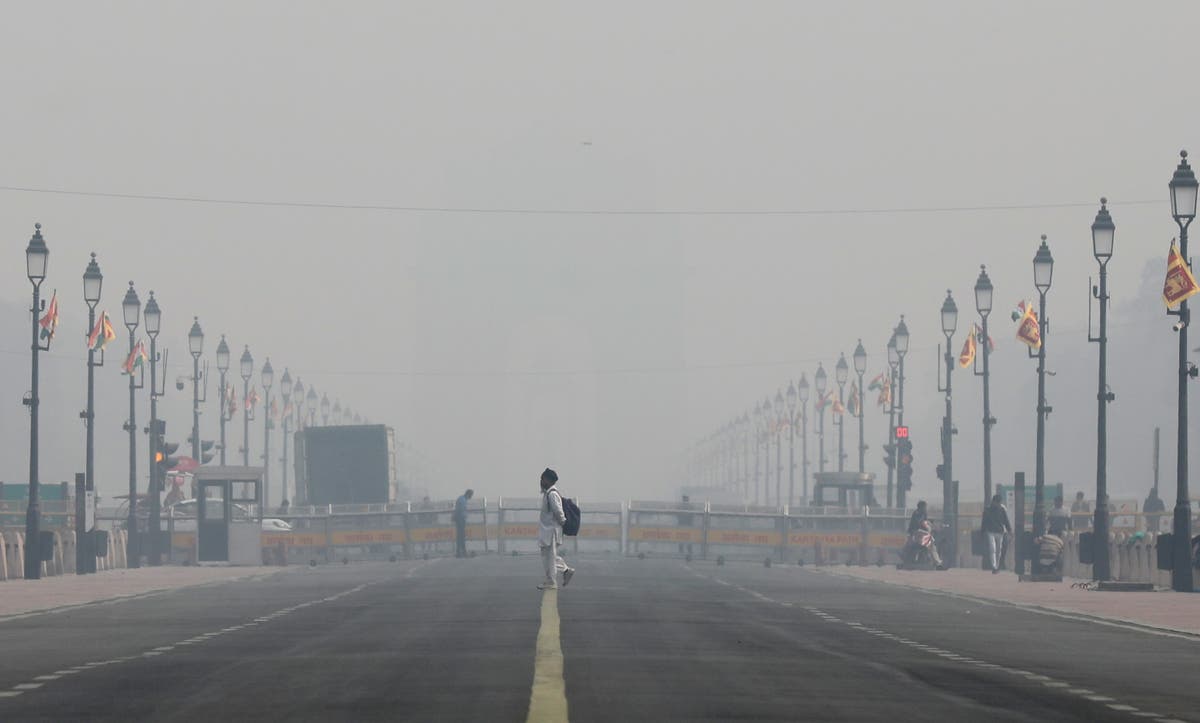Delhi’s air quality plunged to the “severe” category on Wednesday, making the Indian capital the most polluted city in the country for the third day in a row.
A dense blanket of smog covered the city for the third consecutive day as the Air Quality Index (AQI) soared above 440, forcing authorities to reinstate the most stringent pollution control measures under the Graded Response Action Plan (Grap).
The Central Pollution Control Board (CPCB) recorded the AQI at a hazardous 442 at 7am, with several monitoring stations reporting levels in the ‘severe-plus’ range, crossing the 450 threshold.
Similar conditions were reported in the National Capital Region (NCR), with areas such as Faridabad, Noida, and Gurugram also recording extremely poor air quality.
The escalation in pollution levels, which officials say is likely to persist in the coming days, has raised significant health concerns, prompting authorities in the Indian capital to conduct classes in the hybrid mode.

Data from the CPCB shows that the concentration of PM2.5 – microscopic particulate matter that poses serious risks to respiratory and cardiovascular health – stood at 251.5 micrograms per cubic metre on Tuesday evening.
This figure is over 16 times the World Health Organization’s (WHO) prescribed safe limit of 15 micrograms per cubic metre. These particles are particularly dangerous as they can penetrate deep into the lungs and enter the bloodstream, causing long-term health complications.
Experts have attributed the worsening air quality to a combination of stagnant winds, high humidity, and emissions from local sources, including vehicular and industrial pollution. The India Meteorological Department (IMD) reported that low wind speeds have caused pollutants to remain trapped near the ground, while high humidity has further contributed to the smog. Visibility across the region has dropped sharply, with the Delhi airport activating low-visibility procedures as fog reduced visibility to as little as 300m.

The IMD has issued a yellow alert, predicting moderate to dense fog over the next three days and warning that the cold and smoggy conditions are likely to persist.
In response to the escalating crisis, the Commission for Air Quality Management (Caqm) invoked the fourth stage of Grap late on Monday night. Under this framework, authorities have imposed a complete ban on construction and demolition activities in Delhi and its surrounding areas.
Entry of non-essential diesel trucks into the capital has also been prohibited, and operations of older vehicles have been restricted. Public and private offices have been asked to operate at 50 per cent capacity, with the remaining workforce advised to work from home.
State governments in the NCR have also been empowered to implement additional curbs, including the odd-even vehicle scheme, to reduce emissions further.
The health impact of the current air quality has become a growing concern, with the CPCB advising vulnerable groups – including children, the elderly, and individuals with pre-existing respiratory or cardiovascular conditions – to stay indoors as much as possible.
Authorities have urged residents to use air purifiers indoors, wear N95 masks outdoors, and limit physical activity in polluted areas to reduce health risks.

Local emissions, stubble burning in neighbouring states, and adverse weather conditions have been identified as the primary contributors to Delhi’s persistent air quality problems.
The CPCB’s Air Quality Early Warning System forecasts that pollution levels may remain in the ‘severe’ category on Thursday, though slight improvements are expected by 19 and 20 December, with a possible shift to the ‘very poor’ category as wind speeds increase.
However, this marks the second time this winter that the fourth stage of restrictions have been enforced. Authorities had previously imposed similar measures in November when AQI levels exceeded 450. Temporary relief came earlier this month when pollution levels dipped, leading to the rollback of restrictions. However, within a fortnight, the air quality deteriorated once again, forcing authorities to reimpose stringent controls.


